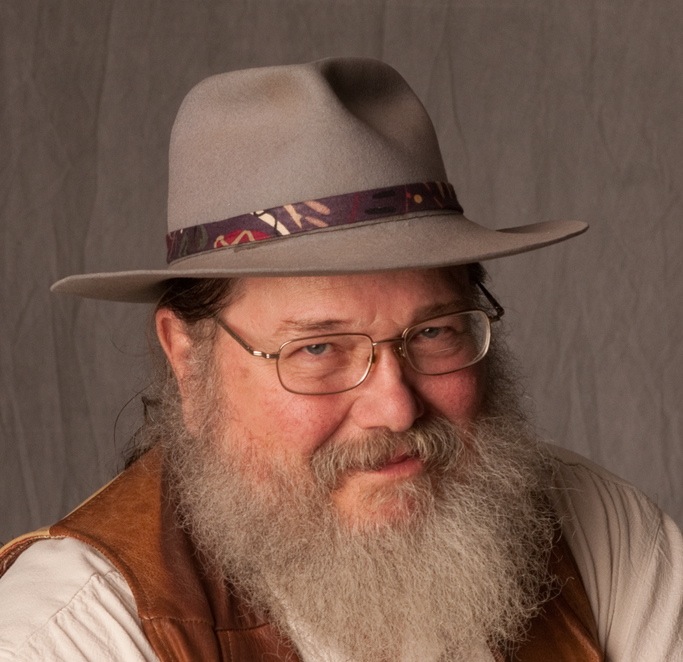Dear Sam,
I hope this finds you well, tucked away there in West Virginia’s sheltering hollers. I confess, I keep picturing you in your old trailer, although I’ve visited you twice since you’ve been in your new handmade house. I loved the closeness of the trailer to the creek. I’m sure you don’t take the creek for granted, but streams of water out here are precious few and far between. They have a presence on maps but they’re mostly ceremonial on the ground. We’re down about 30 percent for our annual moisture with no serious clouds likely on the horizon till probably the 4th of July when the monsoon rains will hopefully roll up from the southeast. My Gem Glass corn sprouted good and survived last week’s 70 mph dry winds but it looks like a frost has nipped the tender shoots. We may be able to replant and still see a harvest of this lovely Indian corn. What luck did you have with the seed I sent? Sue and Eric planted kale, lettuces, spinach, collards and potatoes. Today they’re doing beans and sweet corn and preparing for the tomato plants.
Remember when you planted potatoes in straw at the old schoolhouse and just pulled back the overlaying mulch to harvest rosy, clean potatoes? I loved to follow the tractor when Daddy turned the garden. The damp soil felt heavenly between my toes and I never knew what the plow might reveal. Sometimes it was a hog-nose snake that hissed like a teakettle or half of a meadow mouse’s burrow displaying pink wriggling babies like a museum diorama. I delighted to see the broad flat plane of a sandstone metate heaved into the light by the curved moldboard of the plow.
Last week I enjoyed a Terry Gross NPR interview with Mary Roach about her new book “Gulp: Adventures on the Alimentary Canal.” It was “gross” enough to have delighted a 10-year-old boy. She found vast communities of bacteria and other critters occupying all of our digestive tract. I keep forgetting there’s this whole other garden growing in the dark I should be tending. In another interview I heard Michael Pollan talk about how 90 percent of our DNA was microbial and he compared the human body to a coral reef with other life forms occupying us and sharing our bodies. I was envisioning one of those psychedelic-inspired portraits from the 1960s of the body electric all a-swirl with galaxies, force fields and blossoms.
I’ve been thinking about “store bought” bread yeast as a mono-crop, selected only to make air bubbles as quickly as possible in bread dough. Until the 1950s bakeries allowed bread to rise for eight hours. That gave time for a slow fermentation that produced wholesome, tasty and digestible bread but it required a second shift of workers for the long rise cycle. In a push for efficiency they developed yeast that reduced the rise cycle to three hours. The second shift of workers was rendered redundant, as the British say. Some bakeries now have a 40-minute rise cycle. Sourdough culture is host to countless yeasts that perform many jobs. The minerals concentrated in the bran of whole grains don’t get released unless they’re subjected to slow natural fermentation which also breaks down complex carbohydrates and proteins. Research in Italy suggests gluten may be broken down by sourdough cultures making it acceptable to gluten-intolerant people. I know Rose has struggled with the gluten issue. It would be great if she could enjoy a nice loaf of bread. A friend has promised to share a sourdough culture she has used for 30 years. I’ll keep you posted.
I dearly love my cornbread and enjoy fresh ground meal from my trusty stone burr Magic Mill. When I learned nearly all commercial corn is now GMO I arranged with friends who farm at 4,000 feet to grow me a corn patch this summer. I sent them a pound of Nothstine Dent, a yellow 100-day heritage variety. A few years back they tried to grow me a patch of Bloody Butcher corn but a vicious little monsoon storm with hail and hard rains crushed our efforts. I’d like to grow one of the Native American varieties but they were only available in small seed packets.
Well Sam, I guess I’ll continue to try to understand how this little complex garden ferments and pre-digests my food until the balance tips and my garden starts fermenting and digesting me.
Give my love to Rose.
Your brother Tony

